Table of Contents
Analysis of Complex Sentences:
A Complex Sentence has two or more clauses, one of which is the Principal Clause and the rest are Subordinate Clause or Clauses.
Examples- (1) He said to me that he was going abroad for higher studies.
(2) When I asked his name, he said that his name was Manu.
In sentence 1, there are two Finite Verbs said and was going, so there are two clauses.
(i) He said to me.
(ii) That he was going abroad for higher studies.
Clause (i) makes complete sense. It is the Principal Clause.
Clause (ii) for complete sense depends on Clause (i), so it is the Dependent or Subordinate Clause.
In sentence 2, there are three Finite Verbs:
(i) asked.
(ii) said.
(iii) was.
Hence three clauses-
(i) When I asked his name.
(ii) He said.
(iii) That his name was Manu.
Clause (ii) makes good sense by itself and can stand independently. It is the Main or Principal Clause.
Clause (i) and (ii) for good sense depend on Clause (ii). They are the Subordinate Clauses.
Here are a few more Complex Sentences:
- She said that honesty is the best policy.
- The pen that uncle gave me is of extraordinary quality.
- Where there is a will, there is a way.
In sentence 1, she said is the Principal Clause and that honesty is the best policy is the Subordinate Clause.
In sentence 2, The pen is of extraordinary quality is the Principal Clause and that uncle gave me is the Subordinate Clause.
In sentence 3, There is a way is the Principal Clause and Where there is a will is the Subordinate Clause.
Further on careful study we see that in sentence 1, the clause that honesty is the best policy stands as object of the verb said in clause she said.
An Object is used as Noun, so the clause that honesty is the best policy is the Noun Clause.
In sentence 2, that clause that uncle gave me qualifies the word pen in the other clause. It is thus the Adjective Clause.
In sentence 3, the clause Where there is a will works as an Adverb. It is, therefore, an Adverb Clause.
From the foregoing sentences, we see that there are three kinds of Subordinate Clauses. They are-
- Noun Clause.
- Adjective Clause.
- Adverb Clause.
The Noun Clause:
It does the work of a Noun; it can be-
(1) Subject to Verb; as,
- That he is lazy ‘is clear‘ from his ways.
- Where he lives ‘is known‘ to me.
- What he does ‘is‘ a mystery.
The clauses in bold type are subjects of verbs ‘is clear‘, ‘is known‘ and ‘is‘ in the above sentences. They begin with Relative Pronoun, Relative Adverb and Interrogative Word but these words have no Antecedent before them.
(2) Object to Verb; as,
- He ‘said‘ that he was ill.
- They cannot ‘make out‘ how he failed.
- I would ‘inquire‘ what he wanted.
- She ‘foretold‘ that calamity was shortly befalling her.
All the clauses in bold type are the objects of verbs ‘said‘, ‘make out‘, ‘inquire‘ and ‘foretold‘ of the other clauses respectively.
These clauses are working as Objects. So they are Noun Clauses.
(3) Object to Preposition; as,
- He made a joke ‘of‘ what I said.
- Listen ‘to‘ what she says.
- The book will sell ‘for‘ what it is worth.
- You should be ashamed ‘of‘ what you have done.
The clauses in bold type given above are the objects of Prepositions ‘of‘, ‘to‘, ‘for‘, ‘of‘. So they are the Noun Clauses.
(4) Object to an Infinitive; as,
- I was pleased ‘to hear‘ that he had got a permanent job.
- I am sorry ‘to know‘ that he has suffered a lot.
- I was forced ‘to stay‘ where they lived.
- She was requested ‘to sing‘ whatever she liked.
The clauses in bold type are the objects to infinitives ‘to hear‘, ‘to know‘, ‘to stay‘ and ‘to sing‘, so they are Noun Clauses.
(5) Object to a Participle; as,
- ‘Knowing‘ that the path was dangerous, I abandoned it.
- ‘Fearing‘ that he would fail, he did not appear in the examination.
- He went to Bombay ‘hoping‘ that he would earn more there.
The clauses in bold type above are Objects of their respective participles ‘knowing‘, ‘fearing‘ and ‘hoping‘. They are thus Noun Clauses.
(6) Complement to a verb; as,
- Life ‘is‘ what we make it.
- It ‘seems‘ that it must rain.
- We ‘make‘ what people ask us.
The clauses in bold type above are the Complements to their respective Incomplete Verbs, ‘is‘, ‘seems‘ and ‘make‘. They are thus Noun Clauses.
(7) In Apposition to a Noun or a Pronoun; as,
- The ‘news‘, that he has won a prize, is true.
- The ‘proverb‘, that money makes the mare go, is true for all times.
- The ‘fact‘, that he is a rogue, is widely spread.
The clause in bold type above are In Apposition to the nouns ‘news‘, ‘proverb‘ and ‘fact‘. They are thus Noun Clauses.
Note: A Noun Clause is generally introduced by–
(a) The Conjunction ‘that‘ which sometimes may be understood; as,
- You think that I am against you.
- You think (that) I am against you.
(b) A Relative or Interrogative Pronoun, provided no Antecedent is expressed; as,
- Who works hard succeeds in his life. (Relative Pronoun)
- Tell me what is wrong with you. (Interrogative Pronoun)
(c) A Relative or Interrogative Adverb; as,
- When he went there is known to me. (Relative Adverb)
- I asked him where he lived. (Interrogative Adverb)
Note: The actual words of the speaker put within inverted commas are always a Noun clause; as,
- He said, ‘I am ill‘.
- ‘I am ill‘ is Noun Clause.
Adjective Clause:
An Adjective Clause qualifies a Noun or a Pronoun in some other clause. It is placed nearest to the word it qualifies; as,
- Uneasy lies the ‘head‘ that wears a crown.
- ‘All‘ that glitters is not gold.
In sentence 1, the clause that wears a crown qualifies the Noun head and is placed just after it. It is, therefore, an Adjective Clause.
In sentence 2, that glitters qualifies All and follows immediately. It is an Adjective Clause.
Hereunder find a few more Adjective Clauses.
- I know the man who did it.
- He who works hard leads a successful life.
- God helps those who help themselves.
- I know the house where he lives.
- This is the reason why he failed.
Note: An Adjective Clause is generally introduced by:
(a) A Relative Pronoun; as,
- He ‘who‘ leads others is a leader.
- Do not drink water ‘which‘ is impure.
- Those ‘whom‘ Gods love die young.
- All ‘that‘ glitters is not gold.
- This is the man ‘whose‘ business has failed.
The words in bold types above as ‘who‘, ‘which‘, ‘whom‘, ‘that‘, ‘whose‘ are Relative Pronouns and they introduce the Adjective Clauses in bold type.
(b) Relative Adverb; as,
- This is the house ‘where‘ I was brought up.
- Tell me the reason ‘why‘ you have failed.
- This is the way ‘how‘ you can succeed.
- I know the time ‘when‘ I should work.
In sentences given above, the Relative Adverbs ‘where’, ‘why‘, ‘how‘ and ‘when‘ introduce the Adjective Clauses in bold type.
Note- An Adjective Clause should, as a rule, come just after the Noun or Pronoun it qualifies. Thus it is wrong to say:
The boy got the prize who worked hard.
As the Adjective clause who worked hard qualifies boy, so it should be:
The boy who worked hard got the prize.
The Adverb Clause:
An Adverb Clause modifies a Verb, an Adjective or another Adverb. Thus it may show-
(a) Time; as,
- ‘When‘ the cat is away, the mice shall play.
- Make hay ‘while‘ the sun shines.
- A soldier salutes his officer ‘whenever‘ he meets him.
- I reach home ‘before‘ the sunsets.
- ‘After‘ the show was over, we came home.
- We should wait ‘till‘ he returns.
- ‘As soon as‘ the thief saw the constable, he took to his heels.
- He has been feeling uneasy ‘since‘ he had come here.
- ‘As‘ the Principal entered the classroom, the boys stood up.
- ‘As long as‘ there is life, there is a hope.
From the above sentences it is quite clear that an Adverb Clause of Time is introduced by the following Subordinate Conjunctions:
When, while, whenever, before, after, till, as soon as, since, as, as long as, etc.
(b) Place; as,
- I live ‘where’ you live.
- You followed him ‘wherever’ he went.
- Go quickly ‘whence’ you have come.
- ‘Whither’ you go I shall follow you.
In the above sentences, the clauses in bold type are the Adverb Clauses showing ‘place‘ and are introduced by the bold letters where, wherever, whence, whither.
(c) Reason or Cause; as,
- ‘As‘ I was ill, I kept lying in the bed.
- He failed ‘because‘ he had not worked hard.
- ‘Since‘ you say so, I must believe it.
From the above sentences, we see that an Adverb Clause of Reason or Cause is usually introduced by the following words as, because, since.
(d) Effect or Result; as,
- He is ‘so‘ weak that he cannot move about.
- He is ‘such‘ a nice boy that everybody loves him.
- ‘So‘ good is he that I respect him.
- He speaks in ‘such‘ a low voice that none can hear him.
The Adverb Clauses in bold type show the effect or result and they are introduced by other words ‘so‘ or ‘such‘.
(e) Condition; as,
- ‘If‘ it rains, we shall keep indoors.
- You shall have to do it ‘whether‘ you like it or not.
- You will miss the train ‘in case‘ you walk slow.
- You will fail ‘unless‘ you work hard.
- I shall lend you the money ‘provided‘ you assure me its return.
- I shall lend you my bicycle ‘on the condition‘ that you maintain it properly.
From the above sentences, it is quite clear that an Adverb Clause of Condition must begin with the following words if, whether, provided, unless, in case, on the condition.
(f) Manner or Extent- Adverbial Clauses of Manner or Extent are introduced by the Subordinate Conjunctions as, so far, as if, as though, according as, as far as, etc.; as,
- You may, act ‘as‘ you please.
- ‘so far as‘ canons of morality are concerned, we ought to be civil and benevolent.
- He walks ‘as if‘ he had a limp in his legs.
- They are trying to oblige us ‘as far as‘ they can.
- He pretends ‘as if‘ he were much harmed.
- The more money a man has, ‘the more‘ greedy he becomes. (The more greedy he becomes- Adverbial Clause showing Extent).
- I have done ‘according as‘ I was asked to do.
(g) Adverbial Clause of Comparison; as,
- I am weaker ‘than‘ you (are).
- He is ‘as‘ stupid ‘as‘ he is lazy.
- She is not ‘so‘ simple ‘as‘ you think.
The clauses in bold type are Adverbial Clauses of Comparison. An Adverbial Clause usually begins with the following words:
Than, as…..as, so…..as.
(h) Adverbial Clause of Purpose; as,
- He walked fast ‘so that‘ he might reach the school in time.
- The old man walked carefully ‘lest‘ he should fall down.
- He worked very hard ‘in order that‘ he might get distinction in life.
From the sentences given above it is obvious that the Adverbial Clause of Purpose must begin with so that, lest, in order that.
(i) Adverbial Clause of Contrast; as,
- ‘Though‘ he is poor, yet he is satisfied with his lot.
- He is satisfied ‘although‘ he is poor.
- Rich ‘as‘ he is, he is very meek and generous.
- ‘Even if‘ there is any hindrance, we must pursue our course of action.
- ‘However‘ hard you may try, you stand no chance of success.
- ‘In spite of‘ the fact that he is alert, you can deceive him easily.
From the above sentences, it is clear that an Adverbial Clause of Contrast must begin with the words though, although, as, even if, however, in spite of.
How to find out Adverbial Clause:
In order to find out an Adverbial Clause put the question beginning with any one of the words when, where, why, how, to what effect, with what purpose, with what condition, the answer is, as a rule, an Adverbial Clause of Time, Place, Reason, Manner, Effect, Purpose or Condition respectively.
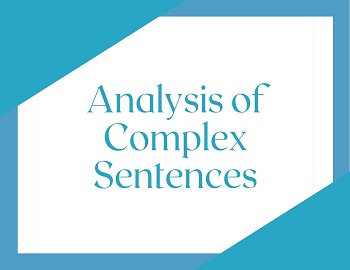
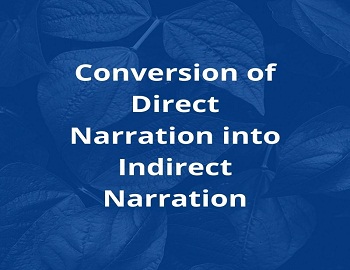
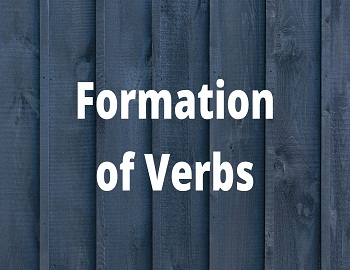
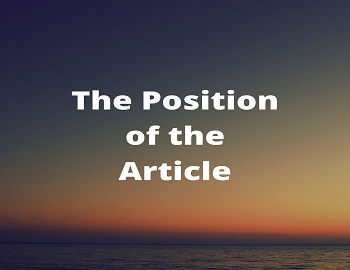

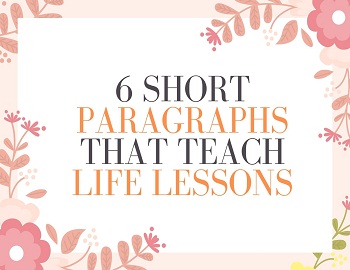
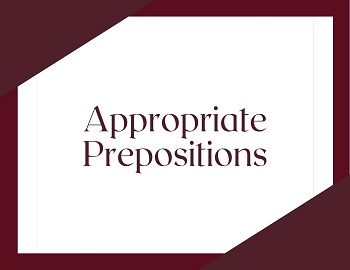

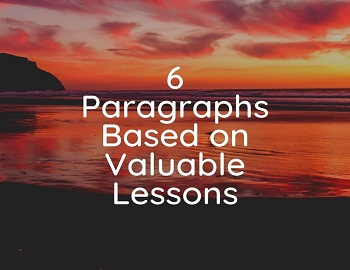
Comments (No)